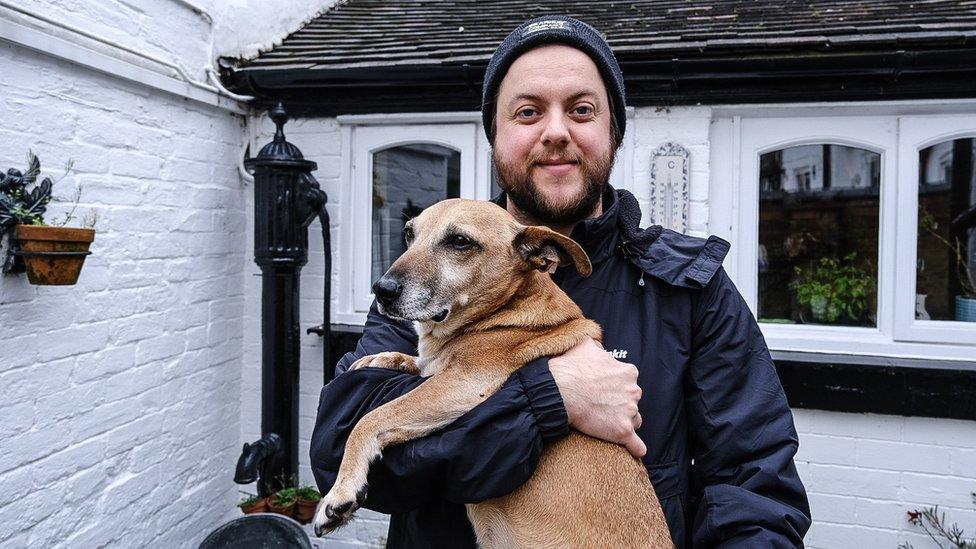'I dreamed of being a make-up artist but I love my job in a mortuary'
- Published
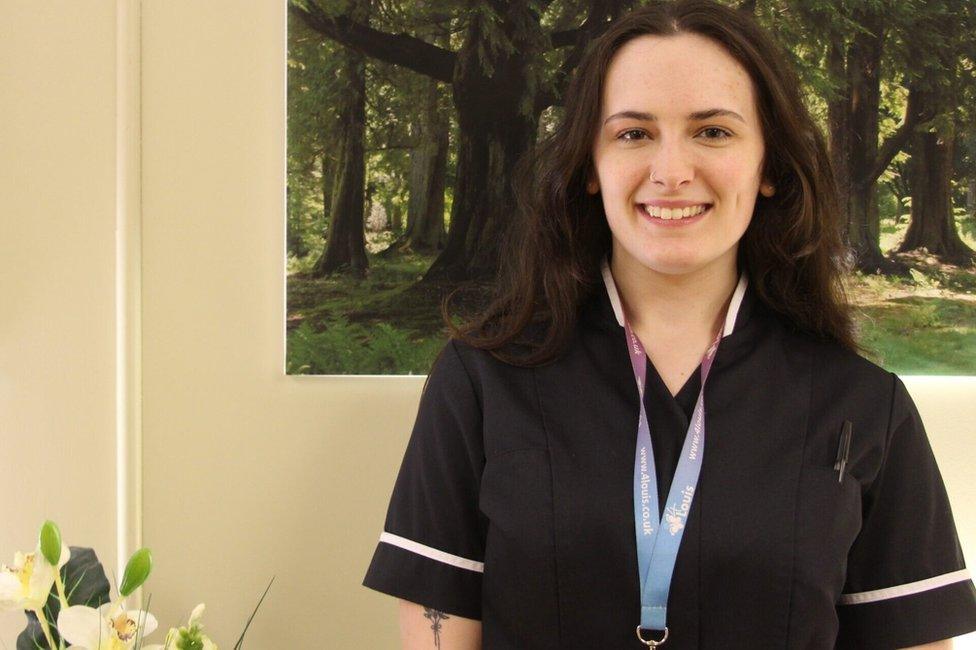
Milina Caley says her unexpected career change gave her a new outlook on life
When Milina Caley was 18 she dreamt of becoming a professional make-up artist and going to university. She never thought she would start a new career working in a mortuary.
"It's one of the most rewarding jobs that I could have ever gone into," she told BBC Radio Tees.
While her career choice wasn't her plan, just like many others, Milina's life changed during lockdown.
The beauty salon where she worked on reception part-time was forced to close and she needed to find a new job.
"I was just finishing college, I was doing make-up for production arts and I needed some money for uni, I thought everyone is crying out for shop workers, I'd do that, a totally normal job."
'Best thing'
It was her mum, who works at the blood bank at University Hospital of North Tees in Stockton, who then mentioned about jobs which had come up at the mortuary.
"I never left - it was the best thing I have ever done," Milina said.
"I had only just turned 18 so it was a whole new experience. There is a very common misconception of what you see on films and TV of what a mortuary is - it was just the complete opposite.
"It's a professional setting, you are working with people who really care about their jobs, who really care about the service they are providing and the care they are giving.
"That quickly settled any nerves I had."
In November 2021, Milina, from Yarm near Stockton, became a trainee anatomical pathology technologist, and having passed a level 3 diploma qualification, she is now studying for the next stage.
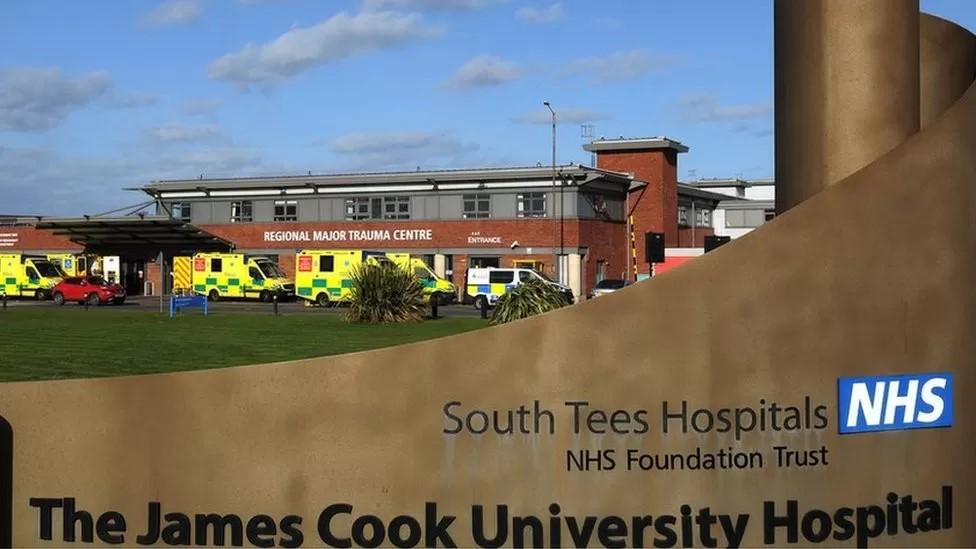
Her role involves care to patients and their loved ones and she assists in post-mortem tests to learn more about patients' causes of death.
A lot of her time is spent at James Cook University Hospital, Middlesbrough.
'So sincerely thankful'
"We'll go in, spend the morning doing the post-mortems, there's a lot to do with the correct consent being taken, making sure that everything is matching, all the ID and paperwork is correct," she explained.
"We will sometimes get relatives that come in and they are so sincerely thankful - it just means the world, it really does, you know you are doing your job right, you know you are providing the best care that you can.
"That's what it's all about - treating people as you would want your loved ones to be treated. I think that's the most important thing."
While at first she said she kept what she did to herself because of the questions it would attract, she is now happy to explain generally to those curious to know.
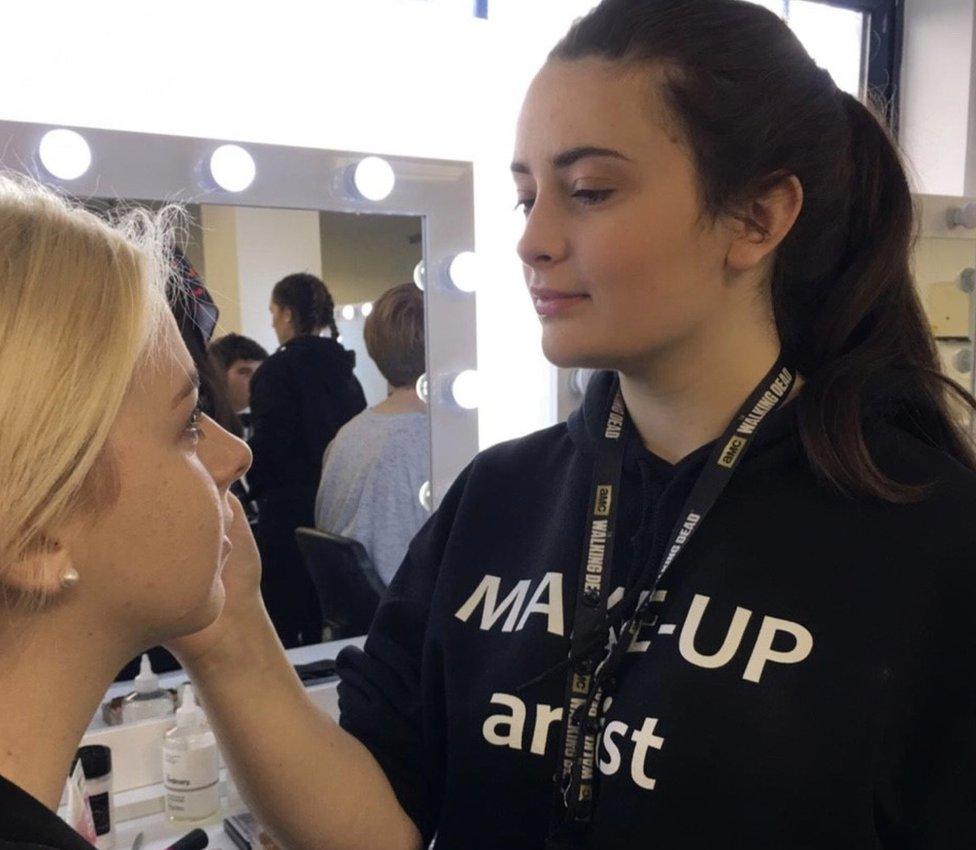
Milina had planned to go to university to become a professional make-up artist
Now aged 21, the role also opened up a new outlook on life while working so closely with death.
"The one thing guaranteed in life is death," she said.
"For most cases you will pass through a mortuary at some point.
"It isn't just older people that we have in our care. It can also be younger people, it can be children, it can be any age range, any background.
"Sometimes it can be a little bit difficult but I found pretty quickly that if you have a really good relationship with the people that you work with, you will deal with it a lot better - and that's what really important to me."
Milina says she's aware of just how important her role is to the families of those she's caring for.
"When they need to know that their loved one is being cared for, they can know that someone is there, someone is looking after them," she added.
"We do our best day-in-day-out to provide the best care that we can."
Milina Caley was speaking to BBC Radio Tees as part of Dying Matters Week, which encourages communities across the country to come together to talk about death, dying and grief in workplaces.

Follow BBC North East & Cumbria on Twitter, external, Facebook, external and Instagram, external. Send your story ideas to northeastandcumbria@bbc.co.uk, external.
Related topics
- Published23 March 2021
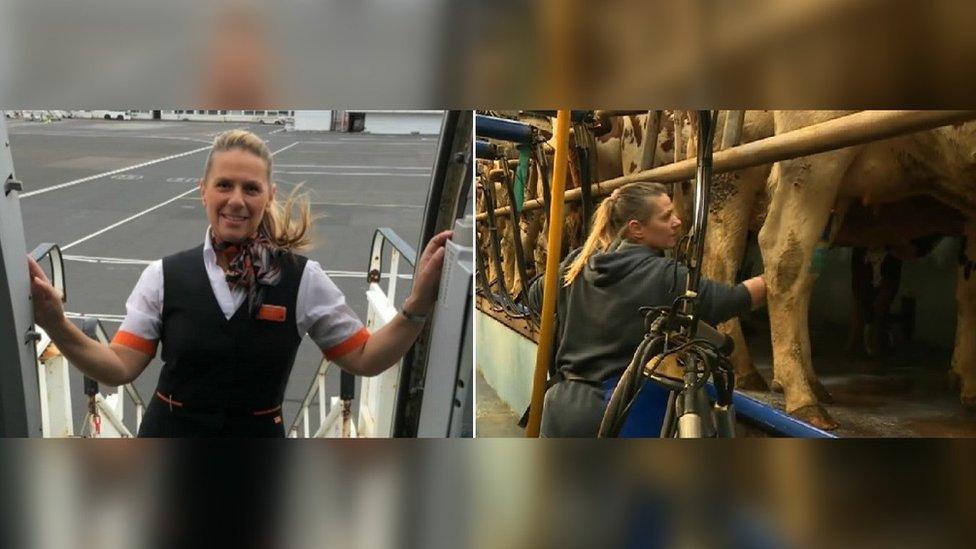
- Published9 December 2021
